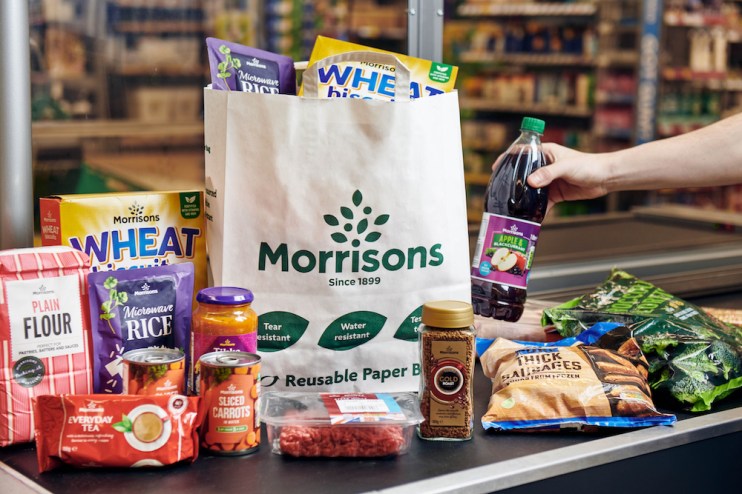Supermarket wars: Morrisons puts £25m into price cuts in bid to break back into ‘big four’

Morrisons is cutting prices across a range of its own-brand products as it joins a string of supermarkets battling to retain customers while living costs soar.
The supermarket, which was recently pushed out of the “big four” UK grocers by discounter Aldi, said it has invested £25 million into the price cuts.
Some 64 cupboard essentials, breakfast items and fresh products will be reduced by an average of almost a fifth, Morrisons said.
For example, a 200g bag of full roast coffee granules has dropped to £2.25 from £3.99, little gem lettuce has been cut to 85p from 99p, and a four-pack of toilet tissue costs now £1.99 from £2.55.
It also introduced promotional deals such as two for £2 on selected crisps and two for £1.80 on cereals.
The offers come into effect this week in all of Morrisons’ 498 supermarkets and online.
Morrisons said it has invested £148 million over the last six months into cutting prices of popular and essential items, and reduced prices of around 1,000 products in January alone.
David Potts, Morrison’s chief executive, said: “We are just seven weeks into 2023 and already this is our fifth significant price activity of the year.
“These latest price cuts follow hard on the heels of two notable in-store price cuts involving well over 1,000 products, and two strong fuel promotions, demonstrating our determination and commitment to make a positive difference to our customers’ pockets.”
Morrisons is among the major supermarkets in the UK competing to bring down prices and retain shoppers who are looking for value in the tougher economic climate.
Last week, upmarket grocer Waitrose announced it was investing £100 million in cutting prices on hundreds of its own-brand products.
And in December, Sainsbury’s revealed it was pumping a further £50 million into its latest price-cutting push to keep customers loyal, taking its total investment to £550 million over two years.
It comes as grocery price inflation hit a record 16.7 per cent in January, according to analysts Kantar, the highest figure since its records began in 2008.
Kantar said the price rises mean households face an extra £788 on their annual shopping bills on average, assuming that they do not change their shopping behaviour.
But competition in the British supermarket sector “is as intense as it’s ever been”, Kantar said, as retailers race to bring down prices on their own-brand items.
It has had a notable impact on shopping behaviour with supermarkets’ own-label ranges growing by 9.3 per cent in January, while branded alternatives were up by just 1 per cent in the month.
Press Association – Anna Wise
